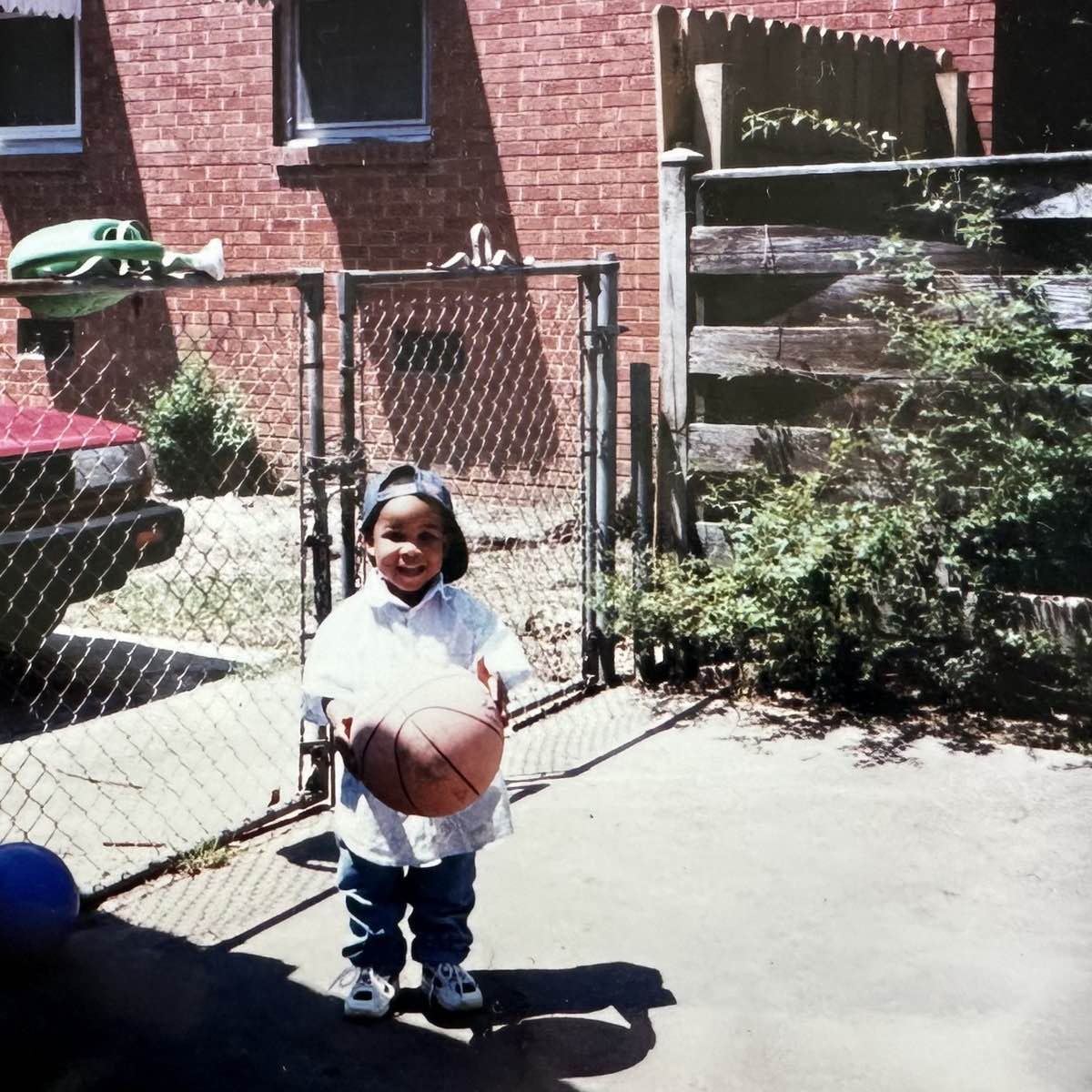Blvck Hippie
Basketball Camp
THE RECORD MACHINE
With US cities once again the targets of political demagoguery ahead of a critically important election, we’re reminded that national conversations about urban areas are typically limited to crime. Meanwhile, city residents (Black and brown urbanites in particular) are characterized in physical terms: “tough,” “street smart,” “dangerous.” In 2021, Josh Shaw—Memphis-based bandleader for self-described “sad boy” indie-rock outfit Blvck Hippie—turned those bigoted conventions on their head with the release of their debut album. The epic storyline on If You Feel Alone at Parties revolved around the emotional challenges Shaw faced as a “weird” Black kid coming of age in a Southern city.
Their new follow-up Basketball Camp takes the next logical step by addressing themes of escapism and grief from a more mature (or at least adult) point of view. Add police brutality, mental and emotional problems, and religious trauma (Shaw’s father was a preacher) to the mix, and Basketball Camp is a lot. But with the consummately transparent Shaw at the helm, the vocalist/guitarist channels the momentum of that emotional weight into a vibrant, propulsive musical feat comfortably departing from the lo-fi, R&B-meets-indie-rock sound that the band strove for on their debut. The four-piece backing band—which recorded Basketball Camp at their own home studio—get further support from 15 ancillary choir singers, brass players, a mandolinist, and the like. The result is a big, bold sound that—thanks also to Shaw’s smooth production value—is to be reckoned with in its own right. Basketball Camp is the lion to Parties’ lamb.
Still, it’s what Shaw has to say that towers above all Blvck Hippie’s strengths (which also include Shaw’s downright awesome command of the stage in a live setting). The title of their new album sounds trivial enough, but in reality it’s a stand-in for Shaw’s challenging relationship with their father, as basketball seemed to be the only love they had in common. Blvck Hippie’s leader addresses their fear of confrontation on “Streetlights.” “Cane and Abel Fighting”—which incorporates Kendrick-inspired free jazz—captures Shaw’s struggle to cope and prevent themself from becoming violent after a friend died of a pill overdose. Elsewhere on Basketball Camp, Shaw opens up about body dysmorphia, coping with the death of a friend in a drive-by shooting, cutting, and spending their last $10 on a pack of cigarettes. As I mentioned, Basketball Camp is a lot.
But that makes it all the more imperative of a listen. When the vast majority of songs dealing with city life focus on vices and superficiality, Blvck Hippie remind us that spaces dominated by austere skyscrapers, endless noise, and street corners festooned with trash are inhabited by people who deal not just with living their days in the city, but who are saddled with interior struggles, too. As Shaw reads from a journal entry in the album closer: “I hear most albums alluding to things never getting better / For so many years I believed, like, nothing gets better … When I’m not like spiraling out, I’m happy I stuck around / I had no idea I could be doing things that, like, actually make me happy.”

